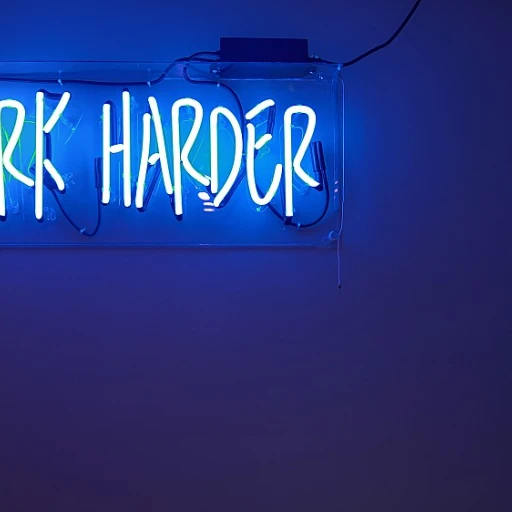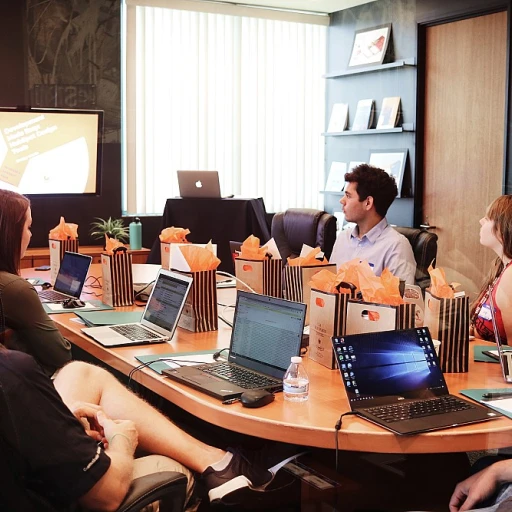
Understanding the Future Workforce Needs
Identifying Key Workforce Trends in Retail and Hospitality
In the constantly evolving landscape of retail and hospitality, understanding future workforce needs is essential for employers looking to maintain competitiveness and enhance their hiring processes. As these industries adapt to changing customer preferences and technological advances, the demand for a workforce skilled in digital literacy and customer service excellence grows. Staffing solutions must evolve accordingly, focusing on agility and innovation. For retail and hospitality industries, the challenge is to refine their recruitment strategies to identify talent that aligns with these emerging trends. By emphasizing roles that merge traditional skills with new competencies, employers can ensure they meet both current operational demands and future strategic goals.- Retail Hospitality Dynamics: As consumer behaviors shift towards more personalized and omnichannel experiences, these industries require candidates who possess a blend of technical skills and customer focus. This ensures that both online and in-store interactions provide a seamless customer service experience.
- Employer Branding and Cultural Fit: Cultivating a strong employer brand is crucial. It attracts candidates who not only fill a role but fit culturally within the organization, contributing positively to the overall workplace dynamic.
- Streamlining the Hiring Process: To enhance the efficiency of the hiring process, adopting innovative recruitment tools like video interviews and pre-employment assessments can help. This reduces time to hire, streamlines candidate screening and improves the overall candidate experience.
- Staffing Flexibility: Embracing a combination of full-time, part-time, and temporary staffing solutions can provide the flexibility needed to meet fluctuating service demands, especially in peak times or tourist seasons.
Technological Innovations in Pre-Hire Solutions
Embracing Technological Shifts in Hiring
As the retail and hospitality sectors navigate evolving workforce demands, technological innovations in pre-hire solutions are emerging as a cornerstone of effective recruitment strategies. These innovations are reshaping the way hospitality employers approach the hiring process, focusing on both efficiency and candidate experience.
One of the most significant advancements is the integration of applicant tracking systems that streamline the recruitment process. These platforms facilitate seamless management of job postings, candidate screening, and the tracking of applicants, providing hiring managers with invaluable insights into pre-employment stages.
Video interviews have gained prominence in the hospitality hiring toolkit. They allow hiring managers to evaluate candidates from diverse geographical locations, thereby broadening the talent pool without the constraints of physical interviews. Furthermore, this method enables a deeper assessment of cultural fit and customer service skills, critical competencies for roles in the hospitality industry.
Artificial intelligence-driven assessments are also advancing rapidly. These tools improve the precision of candidate evaluations, ensuring that the best talent is matched to the right roles. AI can assist in analyzing candidates’ skills and past experiences, rendering the pre-hire process both quicker and more accurate.
Moreover, the use of predictive analytics in the recruitment process is becoming more commonplace. By leveraging data, hospitality employers can predict candidate success rates and optimize staffing solutions. Such analytics not only aid in identifying suitable candidates but also enhance employer branding by showcasing a commitment to innovative hiring practices.
Finally, it is essential to recognize the role of social media and digital presence in shaping applicants' perceptions of employer brand. A robust online presence can attract quality candidates who resonate with the company's values and service ethos.
Skills and Competencies for Tomorrow's Workforce
Cultivating Skills and Competencies for Tomorrow's Workforce
In the dynamic realms of retail and hospitality, anticipating the skills needed for tomorrow is crucial. As industries evolve, so too must the skills and competencies of those who strive to thrive within them. Hiring managers in these sectors are tasked with identifying candidates who not only meet immediate needs but also possess the potential for growth and innovation. Understanding which skills will become cornerstones of retail hospitality roles is more vital than ever.
Today's employment landscape prioritizes certain skill sets that will persist into the future. Among these, customer service acumen remains key, but with a modern twist—embracing technology and digital platforms to enhance customer interactions. Additionally, the rise of remote and hybrid work models demands proficiency in digital communication tools, signaling a shift towards tech-savvy talent acquisition in hospitality staffing and hiring processes.
Significant emphasis is laid on the importance of adaptability and problem-solving. These soft skills play a critical role when hiring for positions that require individuals to seamlessly operate under pressure, providing innovative solutions that maintain service excellence. In tandem with these competencies, job candidates equipped with digital literacy will increasingly become indispensable as pre-employment assessments evolve to include tech-based skills evaluations.
With the aim of supporting recruitment processes, employers in the hospitality industry are adopting more sophisticated assessment and screening methodologies. Incorporating video interviews and digital assessments helps in efficiently determining cultural fit and aligning candidate motivations with employer branding strategies. These tools not only streamline the hiring process but also enhance the candidate experience, leading to a more robust pre-hire evaluation phase.
For retail and hospitality employers keen on embracing these impactful changes, leveraging modern staffing solutions is paramount. Partnering with innovative platforms can offer fresh perspectives on preparing workforce readiness for forthcoming industry trends. Learn more about how to reimagine workforce dynamics in sync with the future of work in retail and hospitality.
Diversity and Inclusion in Hiring Practices
Creating Inclusive Hiring Practices
In the rapidly evolving retail and hospitality landscapes, fostering diversity and inclusion in hiring practices is no longer a mere option—it's a necessity. For hospitality employers navigating the complexities of the hiring process, this presents both an opportunity and a challenge. The retail hospitality industry is marked by its rich tapestry of customer interactions. Echoing the diverse clientele it serves, the workforce should reflect a multitude of backgrounds and perspectives. Hiring managers must go beyond traditional recruitment criteria, employing staffing solutions that prioritize inclusive candidate experiences and enhance the employer brand in the market.- Broadening Talent Acquisition Channels: Expanding recruitment channels can tap into a wider range of candidates, capturing talent from underrepresented groups. It's essential that job postings reach diverse applicant pools, ensuring that all potential candidates feel encouraged to apply.
- Bias-Free Screening and Assessment Tools: Implementing unbiased recruitment processes through advanced assessments and screening tools helps eliminate potential prejudices. These tools can objectively evaluate skills and competencies crucial for the job, redefining the applicant tracking system to minimize gender, race, and age biases.
- Promoting Cultural Fit and Workforce Diversity: Rather than seeking 'cultural fit' in a narrow sense, recruitment efforts should encompass cultural add. This approach can enhance team dynamics and customer service by bringing new perspectives into roles that had once been homogeneous.
- Training and Mentorship Programs: Developing initiatives within the hospitality staffing realm can provide enriching pathways for new hires, particularly from marginalized communities. These programs are instrumental in maintaining a diverse workforce long after the initial hire.













